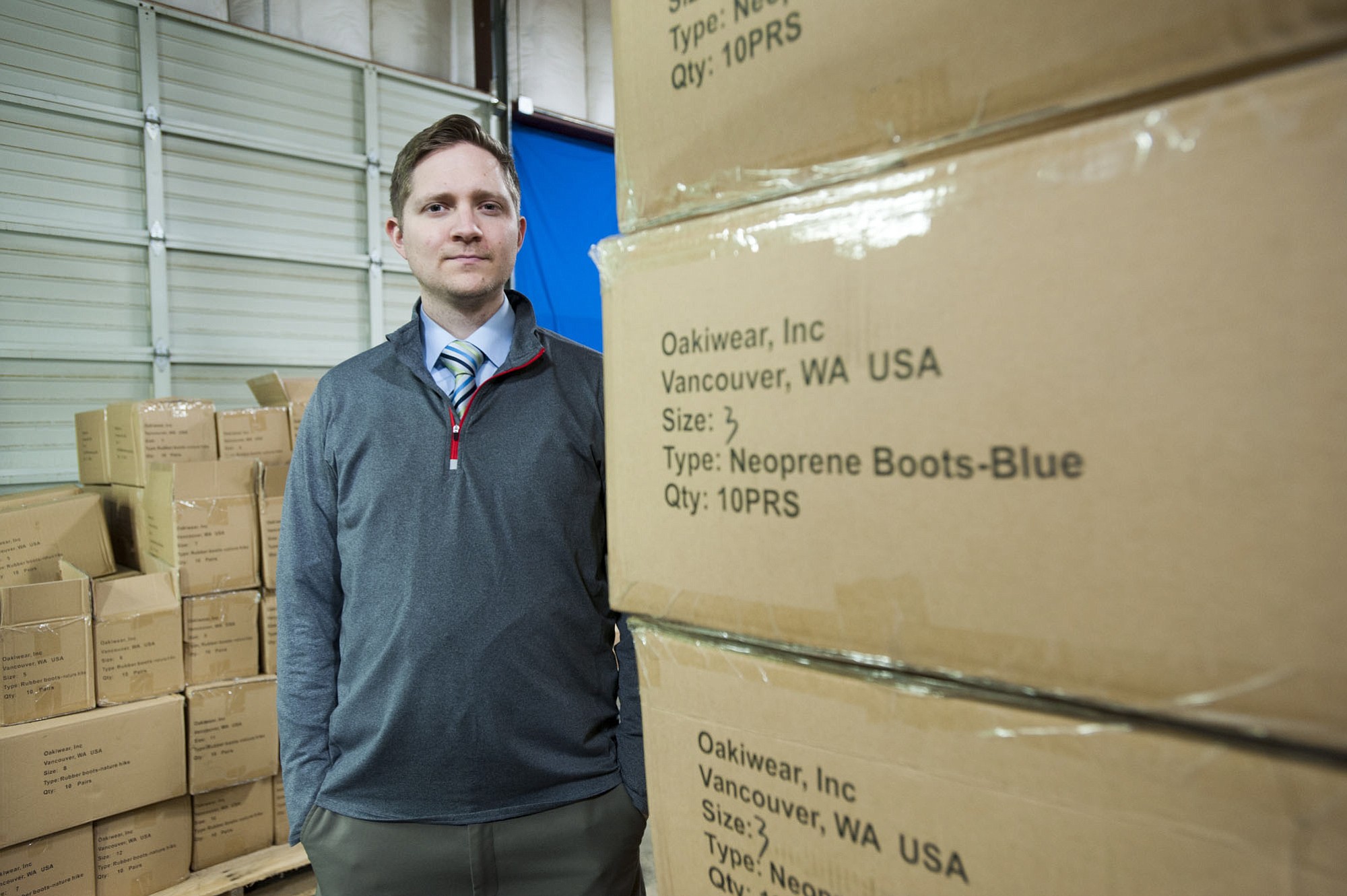Local businesses that rely on imports and exports say they are starting to feel the pinch from port slowdowns on the West Coast.
Importer Benjamin Brewer, general manager of Oakiwear in Vancouver, said inventories at the Vancouver children’s outdoor clothing company are becoming scarce. If the company doesn’t get a needed shipment of its spring gear by March 1, it will affect sales.
“We have empty shelves in our warehouse, where usually it’s stocked full of kids’ waders,” he said. “That stuff is usually flying off the shelves. If that stuff doesn’t get here, we’re going to be selling just (holiday) leftovers,” he said. “It’s kind of nerve-wracking for us.”
Oakiwear’s clothing is made overseas and normally comes across the docks in Seattle. This year, a work slowdown at West Coast ports, which is related to a labor dispute between the Pacific Maritime Association and the International Longeshore and Warehouse Union, is causing a number of problems. If the slow pace of deliveries continues, Brewer said Oakiwear may have to look at layoffs or delay plans to open a store in Portland later this year.
Local exporters, such as DeWils Industries in Vancouver, are also affected by the slowdown. DeWils, which manufactures custom cabinets, ships about 20 percent of its products out of Seattle.
“A lot of our sales and our jobs depend upon moving freight, and this port slowdown is having some very negative consequences to us,” said Tracy Wilson, chief executive officer.
DeWils said truck shipments out of the Portland/Vancouver area have also slowed, although he has been told it’s due to a lack of drivers. As shipping has slowed, more truckers have been tied up in lines at ports, and more trucks are in demand to take products to other U.S. ports that are not part of the labor dispute.
Wilson said his company sells 97 percent of its products outside the local area. Customers rely on the products, such as kitchen cabinets, to get there on time.
“If they can’t rely on the time and when it will get there, they have to make other plans,” Wilson said. If customers cancel because they can’t get their order, he added, “it’s that much harder to get that market back. The longer it drags out, the more entrenched they become with those other vendors.”
The slowdown seems to be posing fewer problems for shippers of smaller, higher-value items.
Vancouver’s Kokusai Semiconductor Corp., which dispatches most of its shipments by air, hasn’t been affected by the labor dispute. But executives there are keeping an eye on it.
Their fear is that a number of big retailers could shift key shipments from sea to air, driving up air freight prices.
“We’re not a big guy, so we could get pushed out of that air freight, which would be disastrous,” said Rob Bernardi, president and chief operating officer of the company.
All three companies were hopeful that Labor Department intervention into the long-standing dispute will lead to a speedier resolution.
“The longer this drags out, the more it will hurt,” Wilson said.



